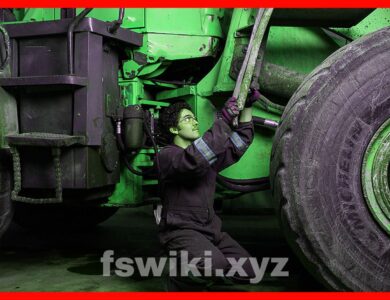
Entry Level Heavy Equipment Mechanic A Gateway to a Rewarding Career
Are you fascinated by the rumble of engines and the intricacies of machinery? Becoming an entry-level heavy equipment mechanic could be your ticket to a fulfilling career in the world of construction and heavy machinery. In this article, we’ll explore what it takes to get started in this exciting field, the skills you’ll need, and the opportunities that await you.

What is an Entry-Level Heavy Equipment Mechanic?
An entry-level heavy equipment mechanic is a professional who specializes in maintaining and repairing large machines used in construction, mining, and other industries. These machines include bulldozers, excavators, and loaders, which are essential for various heavy-duty tasks.
“Heavy equipment mechanics are the unsung heroes of the construction industry. Without them, the machines that build our world wouldn’t function.” — John Smith, Heavy Equipment Specialist
Key Responsibilities
As an entry-level heavy equipment mechanic, you’ll be responsible for:
- Routine Maintenance: Performing regular checks and maintenance on machinery to ensure optimal performance.
- Repairs: Diagnosing and fixing mechanical issues that arise during operation.
- Inspections: Conducting thorough inspections to identify potential problems before they escalate.
- Documentation: Keeping detailed records of repairs and maintenance performed.
Essential Skills and Qualifications
To excel in this role, you should possess the following skills:
- Technical Knowledge: Understanding the mechanics of heavy equipment and how to troubleshoot issues.
- Problem-Solving Abilities: Ability to diagnose and resolve mechanical problems efficiently.
- Attention to Detail: Precision is crucial in ensuring all parts and systems are functioning correctly.
- Physical Stamina: The job often involves lifting heavy parts and working in physically demanding conditions.
Educational Pathways
Most entry-level mechanics start with:
- High School Diploma: Basic education is required, focusing on mathematics and science.
- Technical Training: Enrolling in a vocational school or community college that offers heavy equipment repair programs.
- Certifications: Obtaining certifications from recognized institutions can enhance job prospects.
Career Opportunities and Growth
Starting as an entry-level mechanic opens the door to various career paths:
- Field Service Technician: Working directly on job sites to repair equipment.
- Maintenance Supervisor: Overseeing a team of mechanics and managing maintenance schedules.
- Equipment Specialist: Focusing on specific types of machinery or brands.
Salary Expectations
Salaries for entry-level heavy equipment mechanics can vary based on location and experience. On average, you might expect to earn between $40,000 and $50,000 annually. With experience, this figure can significantly increase.
“Investing in your career as a heavy equipment mechanic is investing in your future. The skills you acquire will be in high demand for years to come.” — Jane Doe, Career Advisor
How to Get Started
- Research: Learn more about the field and the types of equipment you’ll be working on.
- Enroll in Training: Find a reputable vocational program or community college course.
- Gain Experience: Look for internships or entry-level positions to build your skills.
- Network: Connect with industry professionals and join relevant associations.
Becoming an entry-level heavy equipment mechanic is a fantastic way to start a career in a field with growing demand. With the right training and skills, you can look forward to a rewarding and stable job that offers plenty of opportunities for advancement.



